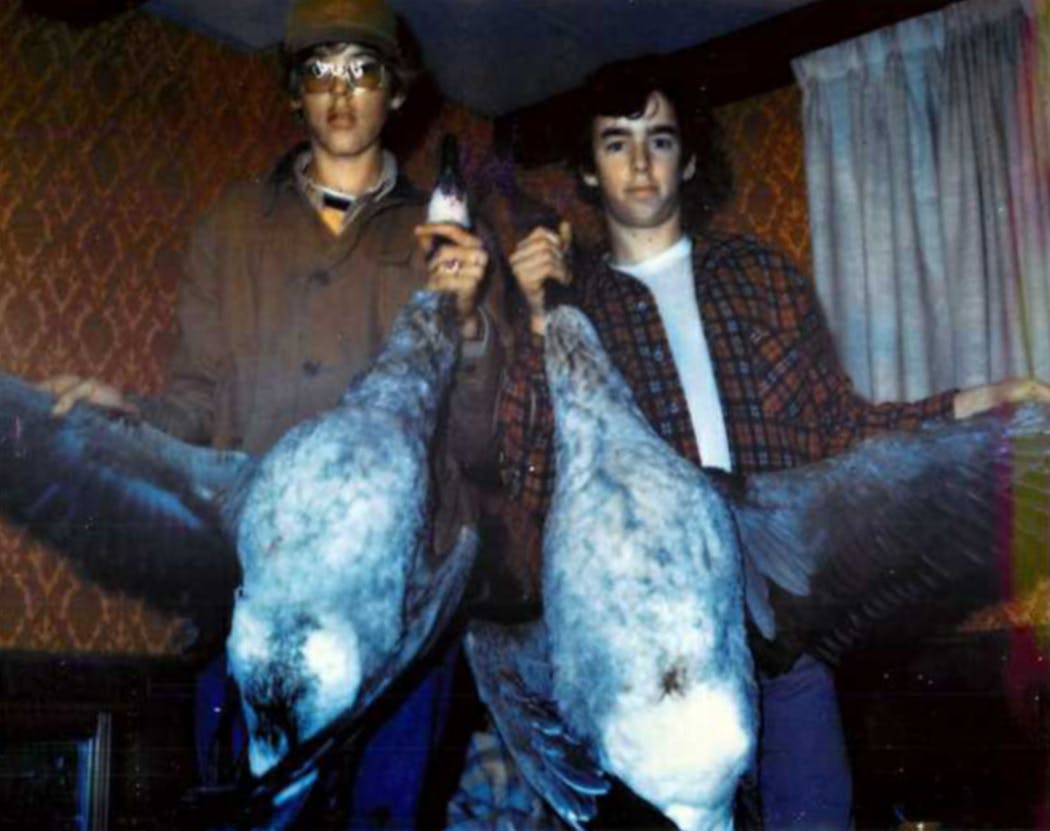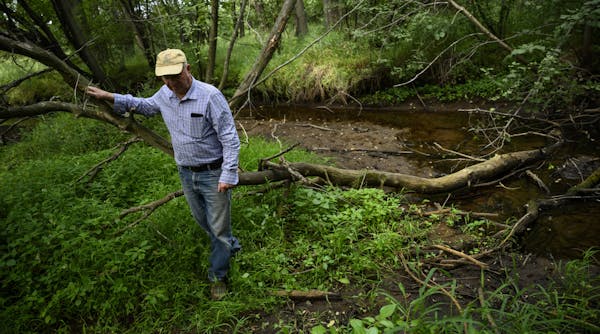It started in high school, in 1973, in an art class, a duck-hunting friendship that this fall will see two buddies climb into a duck blind together for the 49th consecutive season.
When they first met, they were a year apart at Anoka High School. Stephen Roche was the elder, a junior, and Steve Backowski, a sophomore. Each might, or might not, have been interested in art. But both were duck hunters, and duck hunting was what they talked about.
"We had been duck hunting with our dads,'' Backowski said. "But as soon as we got our driving licenses, we were gone. In the fall, every weekend, we hunted ducks.''
At first the two teenagers hunted close to home, in what are now the Twin Cities' northwest suburbs. Then they expanded their territory, hunting shallow lakes near Fergus Falls, before traveling farther west to hunt Marsh Lake in Lac qui Parle County.
"We always wanted to be the first ones on a lake, hunting the best spots,'' Backowski said. "We didn't have a tent, so we'd just roll a tarp onto the ground and pull it over us if we got cold.''
Real waterfowlers, the pair knew, hunted with retrieving dogs at their sides, and in that respect and all others, these boys were real waterfowlers: Roche had a Labrador and Backowski, a Chesapeake.
They loaded their own shells, too, lots of them, and when the ducks were flying, as they did at times in the '70s, Roche and Backowski chambered their homemade loads one after another, pumping them through 870s and Model 12s.
"We always put in whatever extra work was required to get good shooting,'' Roche said. "Even when we started seeing bird numbers fall off, we'd do what we had to do to find them.''
Bound by a common love of fall and the surprise appearance of fast-flying ducks wheeling atop their decoys, Roche and Backowski reflected on a recent day how quickly a half-century can pass, a blink of an eye, really.
On occasion they'll fish together, too, and Backowski's cousin, Randy Fields, has been a valued part of the duck-hunting mix over many years, as have their wives.
"For us, friendship is a big part of duck hunting, the camaraderie,'' Backowski said. "And of course, the dogs. And getting stuck in the muck and everything else that happens when you're duck hunting. But in the end, duck hunting is about the birds. Seeing ducks is such a spectacle. It's cool to be a part of it.''
In their 20s, Roche and Backowski settled into similar career paths. Roche lives in Princeton and owns a construction company, and Backowski, of Andover, is in the drywall business.
They'll admit to one argument in 49 years — over decoys — but otherwise say their long-running friendship has been seamless.
"I've never met a guy who is as ready to get after it as Stephen is,'' Backowski said. "If I say I'll be there at 4:30 in the morning, he'll be standing there waiting, holding a thermos of the strongest coffee possible.''
For his part, Roche believes Backowski might be the world's greatest waterfowl hunter — in part because he has every species of North American duck mounted under glass in his home, except for the spectacled eider.
"We were probably in our mid-20s when we went to Canada the first time,'' Roche said. "We had heard about Delta Marsh and Tin Town and we wanted to hunt it. We had a little wall tent by then and we camped out on the prairie. That's when we met a guy from Gladstone, Manitoba, who said he knew where there were a lot of geese. He said we could pitch our tent in his back yard, which we did. And there were a lot of geese.''
Backowski's dad had bought 120 acres north of Aitkin, Minn., in 1964, paying $6,500 for it, a price that included an old farmhouse. The younger Backowski and his cousin, Fields, subsequently purchased the property, paying it off in monthly installments, and in the years since, the acreage has been a memory maker.
"The first 10 years or so, we hunted deer and grouse on the property, but not ducks,'' Backowski said. "We knew there was a small lake at the back of the property that perhaps held ducks, especially during the flight. But the hike to it was more than a mile long through tough country, so we didn't hunt it. Instead we hunted a nearby wild-rice lake.''
In time, however, the hidden lake — which was more floating bog than lake — became their go-to destination for ducks, especially late-season ringnecks.
Next year, to celebrate their 50th season of duck hunting together, Roche said he and Backowski might travel to Saskatchewan or some other distant location, hoping that waves of ducks wash over them, as the birds did so often when the boys were young.
Then again, Roche and Backowski, along with Fields, might instead gather at the home place, north of Aitkin.
If so, they'll perhaps see fewer birds than they would in Canada.
But they'd still be doing what they first talked about when they met in art class so many years ago.
Hunting ducks. Together.
Which would be celebration enough.

Anderson: Celebrate Earth Day by rekindling real connection to nature
Anderson: Anglers protesting tough new Mille Lacs rules are wrong

Anderson: Courts, not politicians, should rule on Red Lake, White Earth lands

Anderson: Multimillion windfall gets invasive carp deterrent moving
![A young whitetail deer searches for food as another blanket of snow coats the arrowhead. ] Minnesota -State of Wonders, Arrowhead in Winter BRIAN PETE](https://arc.stimg.co/startribunemedia/WK32UWWY6FKNWJUIYCJ6ZPT4AU.jpg?h=91&w=145&fit=crop&bg=999&crop=faces)



